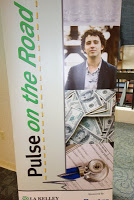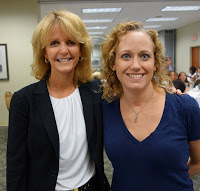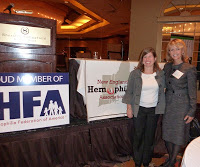Laurie Kelley
October 1, 2012
The word “exchange” is a funny one. It’s Latin root “ex” means “out of, away from” like “exodus” or “exorcism.” It also means “without, not including” like ex-dividends. Or “former” as in “ex-husband.”
In health insurance, it means “confusing, convoluted, complicated comparison.”
Of course, I am only half-kidding.
But all the more reason why parents of kids with hemophilia and patients 18 and older need to start reading about and preparing to engage in the coming state insurance exchanges. These are part of the Affordable Care Act, passed by Congress and being enacted in phases with most of the changes beginning in 2014. These include the exchanges, a virtual “marketplace” (basically a web site) where people can shop and compare to buy the healthcare insurance that best suits their needs and budget. Michelle calls them the “Travelocity” of health insurance.
But with presidential elections looming, and some states suing the government to repeal the ACA, it’s still a Wild West health insurance show out there.
On Saturday, I attended a great presentation by Michelle Rice, director of public policy at NHF about state exchanges. NHF has been holding webinars to train the community’s top advocates. Michelle reported over 85 people attended the first webinar!
Here are some snippets of what I learned Saturday from Michelle:
1. State exchanges will be like “one stop shopping”—a gateway to coverage for 30 million people who need insurance (and don’t forget the ACA will mandate most everyone have health insurance).
2. The exchanges allow comparisons on four levels of benefits. They provide federal subsidies for premiums and out-of-pocket (OOP) costs for people below 400% poverty.
3. There’s funding for states to set up IT development, as the websites will need to be sophisticated to help the millions who will be tapping into them.
4. There are minimum standards for all exchanges to allow easy comparison:
5. 4 coverage tiers based on patient OOP costs;
6. Essential health benefits (being defined at the state level)
7. There will be “navigators” to help people use the exchange, multiple ways to enroll in person, online, phone), and one simple application
8. In 2014 all high risk pools will go away and these people will end up on exchange.
9. 2 states, Louisiana and Arkansas, won’t operate their own
10. 15 states already established the exchange (which doesn’t mean they can actually do it!)
11. 3 plan to establish (California, Colorado, Maryland)
12. 19 states are studying options
13. 12 states have taken no significant action
Things are moving quickly, and if you have a chronic disorder like hemophilia, you must have insurance.
Want to learn more? Go the NHF’s website www.hemophilia.org and download slides from the last webinar. Get EXcited about learning more about insurance exchanges and EXcel! The more you learn, the better you will be able to handle the coming changes.
Good Book I Just Read
Funny Blood: The remarkable
story of my daughter Ros by Juliet Batten, 2011
This is the very sweet and easy to read story of a young English woman who in 1974 adopts a beautiful baby girl, named Rosamund (“Ros”) who later is diagnosed with von Willebrand disease. The book, while no where near as in-depth and educational as Journey by the Massies, nonetheless paints a picture of the isolation in the 1970s and 80s of having a child with VWD, a disease not written about often or paid much attention to, given the medical demand that hemophilia/HIV provided. Juliet gives a heart-wrenching testimony of her daughter’s suffering and her stoic nature, as she braves so many hospital trips and procedures, and survives her first periods, which entail lengthy hospital stays. Both mother and daughter share strong character, uncomplaining nature and solution-seeking orientation. A wonderful mother and person, Juliet, and husband John, adopt Paul, a needy and active four-year-old, adding more stress and challenges into their lives, which they seem to overcome through the years with persistence and dedication.
The book is well written, interesting and inspirational. Ros succeeds beyond all odds and is now leading a successful life. My friend Richard Atwood, bleeding disorder book critic, writes, “The author did not expect to adopt a child with a major medical problem, but Juliet was capable and her Quaker beliefs provided a peaceful serenity. By necessity, Juliet learned about VWD, became a self-taught expert, and supported others; she also wrote articles for hemophilia and for adoption. Juliet, now retired, writes in her diary as Ros writes a blog; their inspiring story is insightful for living with a bleeding disorder.”
To this I would add that the book’s only flaws are the sometimes misinformation of the medical and scientific side of hemophilia, VWD, plasma and factor concentrates. For example, Juliet writes that 3% levels of factor VIII means severe hemophilia–not true. Also her descriptions of factor concentrates are a bit off-base. The book could have used more stringent medical editing. But if you look to the book for a heart-warming story of a remarkable mother and daughter, and to gain insight on what living with VWD is like in the 1970s and 80s, you will be very rewarded. I especially like how she gave such high marks and kudos to the Haemophilia Society and her HTCs. Juliet sounds like a classy lady! Three out of five stars.









